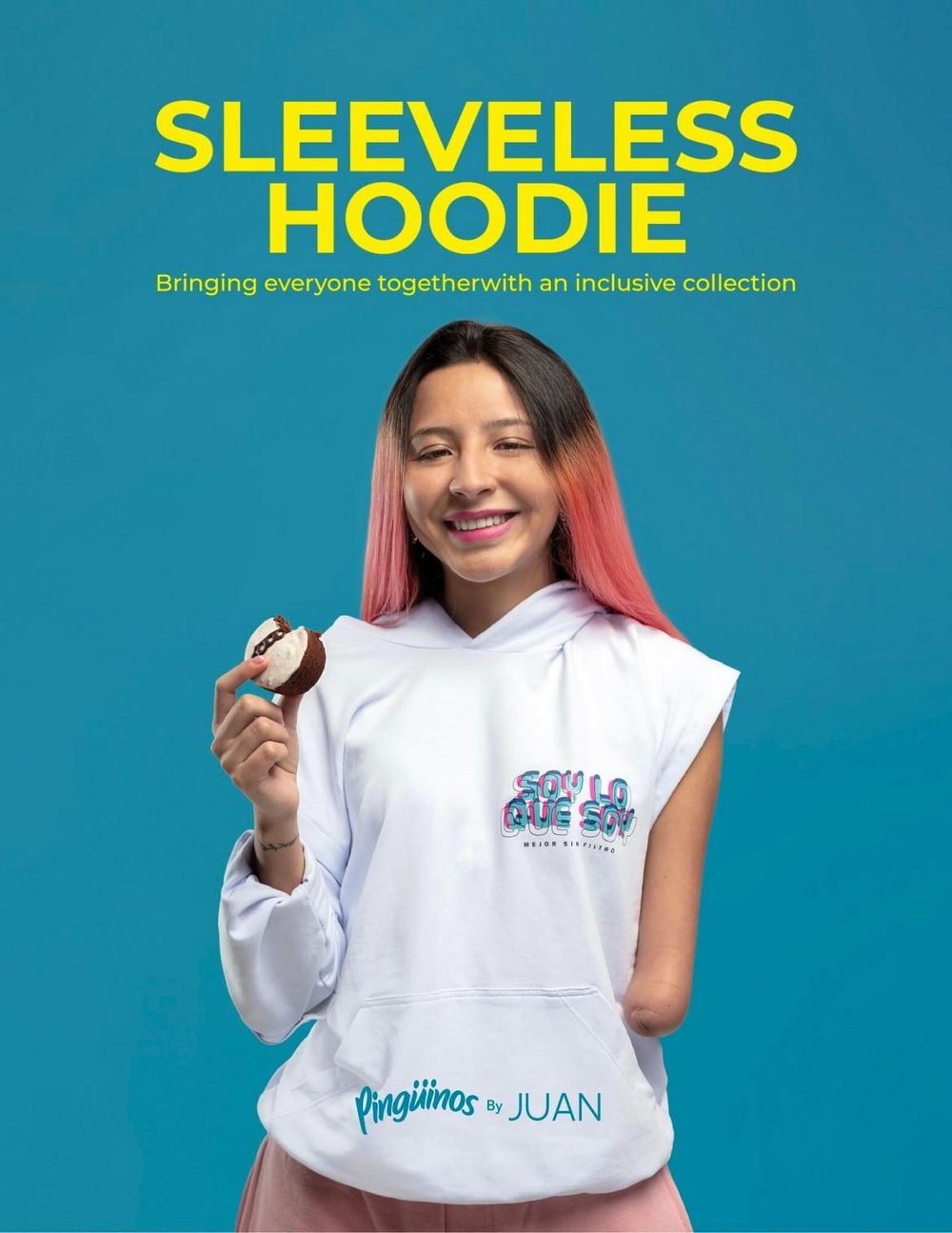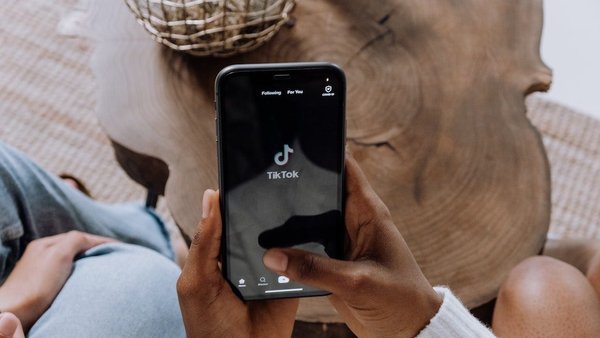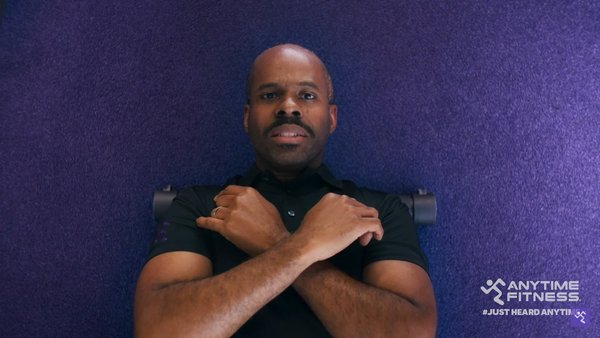Contagious Spotlight on Latin America: May 2021 /
Luísa Fedrizzi
/The Contagious team in Brazil picks its favourite campaigns from across Latin America over the past month, highlighting the creativity and strategy that makes the work relevant and interesting.
Omo, #NinguémLavaMinhasCalcinhas (#NobodyWashesMyPanties) / Monkey-land, Brasil /
In Brazil it’s common for women to hand wash their underwear in the shower. Girls are usually taught to do it by their mothers when they become teenagers and are expected to become self-reliant. But some women reject the practice, either because they don’t like doing it or because they don’t like how their underwear looks and feels afterwards.
Omo, Unilever Brazil’s biggest detergent brand, created a microsite asking women how they felt about washing their underwear in the shower as part of a campaign to launch a product to clean intimates and bikinis.
The brand then worked with creative studio Monkey-land and production company Santa Transmedia to create a campaign emphasising the importance of self-reliance (using the tagline #NobodyWashesMyPanties) over where you wash your underwear.
Five influencers helped to launch the campaign and for every one of its new products sold via the Rappi grocery delivery app, Omo donated another one to a woman in need.
Contagious Insight /
Don't tell, ask / With controversial and personal topics such as this one, it's better to start a conversation than tell people what they should or shouldn't do. Omo crowdsourced opinions and used them to create a campaign that reflected different perspectives and framed the product as the best solution for everyone. There's no right or wrong, no specialists, no magic solutions; just an open dialogue that respects cultural traits and intimate decisions.
A rare case of sitting on the fence / It has become impossible to avoid the topic of brands needing to take sides on social and political issues, from complex problems like the climate crisis to lighter issues, like controversial reality show participants. Polarisation is everywhere. As Bill Bernbach said: ‘If you stand for something, you will always find some people for you and some against you. If you stand for nothing, you will find nobody against you, and nobody for you.’
But for every rule there's an exception.
The way Omo makes its non-stand work is by having a bigger background message, versatile enough to connect with the audience regardless of how they see the underwear issue, but specific enough to put them on the side of a large group of empowered, independent women. With #NobodyWashesMyPanties, it is claiming that each and every woman can do whatever feels right for them. That's the statement.
McDonald's, #MéquiLookDelivery / DPZ&T, Brasil /
McDonald's in Brasil is celebrating the outfits people wear to collect delivery orders from their doorstep – like non-matching pajamas and flip-flops with socks – amid the pandemic.
The brand is inviting customers to submit pictures of themselves holding their McDonald’s delivery and wearing their best outfit, and the most stylish followers will have their looks replicated on the fast-food chain’s Instagram channel.
The brand's name is spelled "Méqui" to mimic the way Brazilians say "Mc" in Portuguese, and it's been central to its local strategy since 2020. ‘In the last year, [picking up] delivery has gained the status of a true event. To go get your order, any look, from the most basic to the most unusual, is worth it. With this campaign we celebrate the individuality of our customers again. We started the year talking about 'Méquizices', which are the particular ways each person chooses to enjoy their favorite bite from Méqui. In this new moment, we take another step and reinforce that any look is valid for you to taste our products,’ said João Branco, CMO at McDonald’s Brasil.
Contagious Insight /
Big business / The delivery service industry grew 300% in Latin America over the past five years, according to a Euromonitor International report, which states: ‘Although the United States is a much larger consumer market than that found in Latin America, the US demand for home delivery is surpassed in Argentina, Brazil and Colombia, where it represents a larger proportion of total food service sales in these countries.’
McDonald's Brasil’s delivery services grew 150% in 2020 but is still a fairly small part of the business, at 14% of all sales. Moving its marketing and communication strategies towards what it calls the three Ds (drive-thru, delivery and digital) is a way for the fast-food chain to gain market share while social distancing measures are still in place.
Fun in dark times / The pandemic is far from being controlled in Brazil, and after more than a year of social distancing and constant bad news, brands are walking a fine line in trying to respond to the situation while also bringing a more lightweight tone to their communications. McDonald's hit a sweet spot with this project. It encourages people to stay home, it celebrates their personalities and personal style, it creates a fun situation to ‘dress up’ for, and of course, it puts the product front and center, driving sales.
Pingüinos Marinela, What's Inside is What Matters (Lo importante es lo de adentro) / Fantástica, Colombia /
Snack cake brand Pingüinos Marinela created an ad to help teenagers in Colombia face bullying and self-image issues. The campaign was inspired by a study, conducted by the brand and the agency Fantástica, which found that seven in 10 children are unhappy with who they are and how they look, and that much of that anxiety comes from social media.
Stating that ‘what's inside is what matters’, the ad features real kids who have suffered with bullying and who wouldn't usually fit the stereotypes and unrealistic standards of TV commercials. It was then transformed into shorter pieces designed for TikTok, together with an original song that invites teens to fully embrace and show who they are.

Pingüinos also partnered with one of the most important designers in the country to create a clothing collection that doesn't follow fashion canons or trends, and is designed for everyone to wear and feel good about themselves. The campaign is completed by filters that remove filters, Spotify lists and messages on social networks that challenge the discrimination that algorithms generate.
Contagious Insight /
Keeping the brand promise / Marinela Pingüinos reconsidered the role that it plays in the lives of its target audience of kids between 14 and 17 years-old. ‘Pingüinos Bimbo is a cream-filled chocolate cake whose purpose has always been to end bitterness. But, seeing the results of the research we carried out, we could no longer speak of ending bitterness if the sentiment children have is ignored: not feeling good about who they are,’ said Alejo Gómez, creative general director of Fantástica.
Tatiana Esguerra Resk, marketing manager at Grupo Bimbo (who owns the brand), added: ‘Our product has something very important, which is the power of what it carries inside. And that, precisely, is what we want to convey as a message to adolescents: there is much to say and tell in what they have inside.’
Unexpected merchandise / The key to the brand’s success with the clothing line was the partnership with the designers from Juan Colombia, a brand that describes itself as ‘a fusion of rock & roll and glamour’.
Collaborations can be mutually beneficial arrangements, creating new revenue streams, optimising marketing and advertising resources and boosting awareness. Also, ‘by introducing both brands into two different markets, they are building new audiences as well as their presence in unknown markets,’ as designer Cassandra Tang writes in this article.
In the past year, we have seen many brand collaborations (some unexpected) and besides the mentioned practical aspects and benefits, Simon Cotterrell, executive director of strategy at Interbrand London, argues that there's also an emotional angle to this phenomenon: ‘Brands seem to be displaying the same fundamental need for collectivism that we as individuals are all turning to. While they’re not literally helping neighbours do the shopping or corralling around screens to admire a distant friend’s living room wall, the simple human need to come together in a crisis is what I believe is giving the green light to such an active bout of corporate collaboration.’
Want more of the same? /
We don’t just write about best-in-class campaigns, interviews and trends. Our Members also receive access to briefings, online training, webinars, live events and much more.







